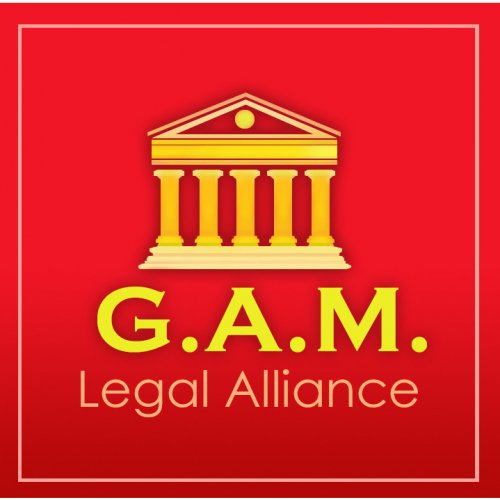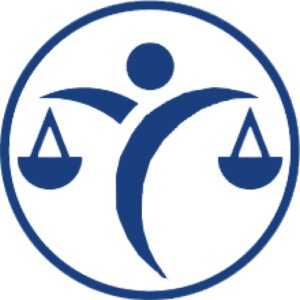Best Dependent Visa Lawyers in Bangkok
Share your needs with us, get contacted by law firms.
Free. Takes 2 min.
List of the best lawyers in Bangkok, Thailand
Legal guides written by Smart Legal Solutions:
- Main Legal Measures to Protect Foreign Investment in Thailand
- The importance of the geographical indications for the Thai economy
Legal guides written by SIAM LEGAL INTERNATIONAL:
- Defamation Laws in Thailand: Criminal Charges and Civil Suits
- The State of Thailand’s Long-Term Resident (LTR) Visa Program in 2025
- The Penalties Of Not Filing Your Income Tax Return As A Foreigner In Thailand
Thailand Dependent Visa Legal Articles
Browse our 3 legal articles about Dependent Visa in Thailand written by expert lawyers.
- What Are the Requirements for a Marriage Visa in Thailand (2024)?
- A marriage visa in Thailand, also known as a Non-Immigrant O Visa (based on marriage) or Thai Spouse Visa, permits a foreigner who is lawfully married to a Thai resident to reside in Thailand. As of 2024, the application process for a marriage visa can prove to be rigorous, needing... Read more →
- How Can I Renew My Visa in Thailand? A Comprehensive Guide for 2024.
- If you live in Thailand and want to renew your visa, you should understand the procedure, the many kinds of visas available, and the documentation you'll need. Visa renewals are required to remain lawfully in the nation, whether you are on a tourist visa, a work visa, a retirement visa,... Read more →
- Different Types of Long-Term Visas in Thailand
- Looking to make the Land of Smiles your long-term home? Thailand offers a variety of long-term visa options catered to your needs, whether you're settling down with a Thai spouse, retiring by the beach, investing in local business, or enjoying the perks of the Thailand Privilege program. Here's a brief... Read more →
About Dependent Visa Law in Bangkok, Thailand
A Dependent Visa in Bangkok, Thailand, is designed to allow family members of individuals who hold long-term non-immigrant visas to legally reside in Thailand. These family members typically include the visa holder’s spouse, children, or elderly parents. The Dependent Visa, often referred to as a Non-Immigrant O Visa, does not permit employment in Thailand, but allows the dependents to live in the country for the duration of the principal visa holder's stay. The requirements and application process for a Dependent Visa can be stringent, with factors such as financial stability, proof of relationship, and the visa status of the primary visa holder being crucial for approval.
Why You May Need a Lawyer
While the basic requirements for a Dependent Visa may seem straightforward, there are several circumstances under which legal assistance may be beneficial. These include:
- Difficulty in providing sufficient documentation or proof of relationship.
- Complex family situations, such as adoption or guardianship.
- Navigating the renewal process which can involve changes in laws or personal circumstances.
- Understanding the implications of the visa on activities such as schooling or medical care.
- Translating necessary documents from a foreign language into Thai.
- Handling cases where the principal visa holder changes their visa status.
A lawyer experienced in immigration law can provide invaluable advice and assistance, ensuring compliance with all requirements and improving the chance of a successful application.
Local Laws Overview
The laws governing Dependent Visas in Bangkok, and Thailand in general, fall under the country's broader immigration laws. Some key aspects to be aware of include:
- Non-Immigrant O Visa regulations prescribe that dependents must have verifiable financial support.
- The necessity for proof of relationship, which can include marriage certificates, birth certificates, or legal documents verifying guardianship.
- Periodic reporting requirements, often every 90 days, that are mandatory to maintain compliance.
- The non-employment clause means dependents cannot partake in any form of work in Thailand unless they acquire a work permit independently.
- Healthcare and schooling considerations under Thai law vary for dependents, depending on the specifics of their visa status.
Frequently Asked Questions
What documents are required for a Dependent Visa application?
Commonly required documents include marriage and birth certificates, passport copies, the visa holder's financial statements, and proof of residence in Thailand.
Can Dependent Visa holders work in Thailand?
No, Dependent Visa holders are not permitted to work. They would need to apply for a separate work permit to be employed in Thailand.
How long does the application process take?
The process can take several weeks to months, as it involves submitting documents, verifying relationships, and potentially multiple interactions with Thai immigration authorities.
What happens if my application is denied?
If denied, you can seek legal advice to address the reasons for denial and gather any additional evidence or documentation necessary for a successful reapplication.
Can my parents apply for a Dependent Visa?
Yes, elderly parents of a primary visa holder can also apply, provided you can show you can financially support them.
Do language barriers pose a problem in the application process?
Language barriers can be challenging, especially with document translations. Hiring an immigration lawyer can help overcome these issues.
Is a police report required for a Dependent Visa?
Typically, a police clearance certificate is not required for a Dependent Visa but check with the consulate or legal advisor as requirements may vary.
Are there any age restrictions for children on Dependent Visas?
As long as you can demonstrate financial responsibility, children under 20 can usually qualify for a Dependent Visa.
Can I convert my Tourist Visa to a Dependent Visa while in Thailand?
Converting a Tourist Visa to a Dependent Visa is complex and typically requires exiting and re-entering the country with the appropriate documentation and following applicable visa regulations.
What should I do if I lose my Dependent Visa?
In case of loss, report to local authorities and consult with the nearest Thai immigration office to begin the process of obtaining a replacement.
Additional Resources
For further assistance, consider contacting:
- The Thai Ministry of Foreign Affairs or local Thai consulates, which offer updated information on visa requirements and regulations.
- The Immigration Bureau in Bangkok, which provides direct guidance and support for residents and dependents dealing with visa issues.
- Local legal firms specializing in immigration law for personalized legal advice and assistance.
- Online forums and expatriate communities in Thailand which can share personal experiences and advice.
Next Steps
If you require legal assistance in dealing with Dependent Visa matters, consider the following steps:
- Conduct research on immigration lawyers with a successful track record in Thailand.
- Schedule consultations to discuss your case, ensuring you bring all required documents and relevant information.
- Seek advice on potential future changes in your immigration status and any long-term plans.
- Remain informed about the latest developments in Thai immigration law to ensure continued compliance.
Lawzana helps you find the best lawyers and law firms in Bangkok through a curated and pre-screened list of qualified legal professionals. Our platform offers rankings and detailed profiles of attorneys and law firms, allowing you to compare based on practice areas, including Dependent Visa, experience, and client feedback.
Each profile includes a description of the firm's areas of practice, client reviews, team members and partners, year of establishment, spoken languages, office locations, contact information, social media presence, and any published articles or resources. Most firms on our platform speak English and are experienced in both local and international legal matters.
Get a quote from top-rated law firms in Bangkok, Thailand — quickly, securely, and without unnecessary hassle.
Disclaimer:
The information provided on this page is for general informational purposes only and does not constitute legal advice. While we strive to ensure the accuracy and relevance of the content, legal information may change over time, and interpretations of the law can vary. You should always consult with a qualified legal professional for advice specific to your situation.
We disclaim all liability for actions taken or not taken based on the content of this page. If you believe any information is incorrect or outdated, please contact us, and we will review and update it where appropriate.

















